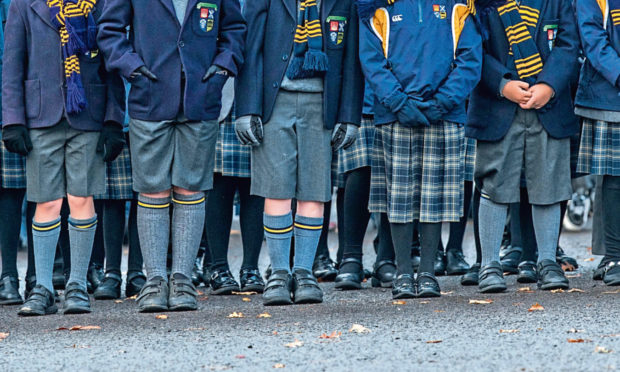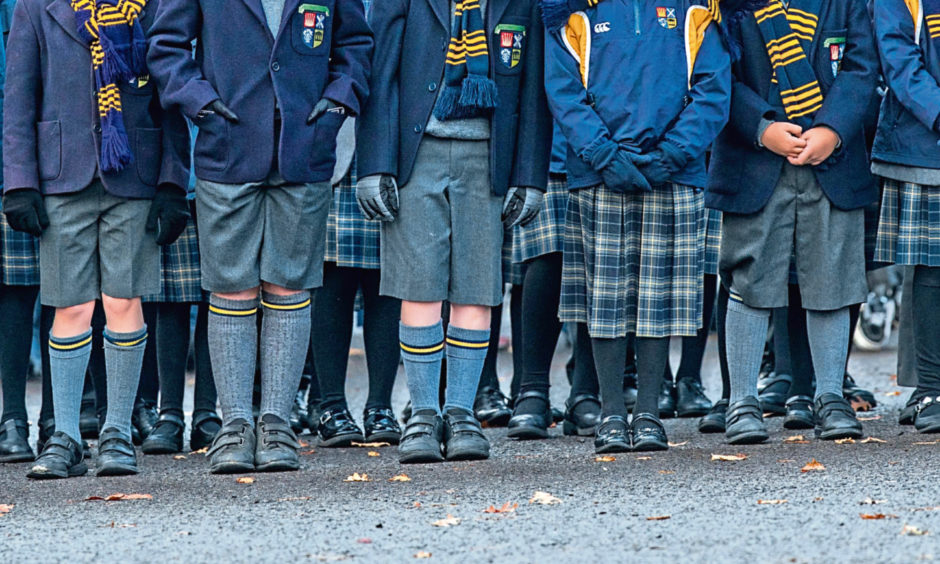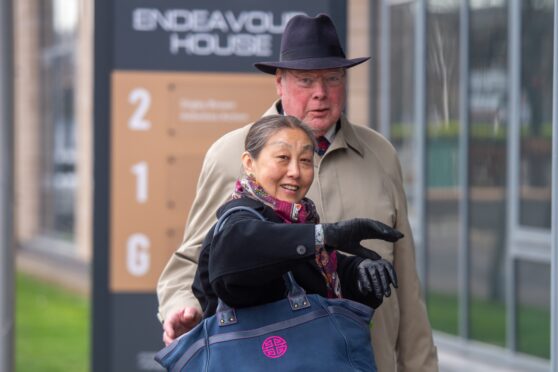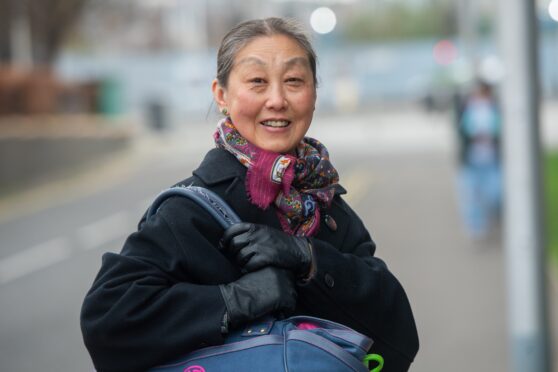Fee-paying schools across Tayside and Perthshire have experienced a surge in interest from parents amid uncertainty over how schooling will look come August.
Independent schools across Scotland have begun to outline plans for pupils to return to full-time, in-class learning when the new academic year begins — which has led to an increase in interest from parents looking to secure a place for their children.
Among those who have experienced a surge in interest since the beginning of lockdown is Dundee High School and rector Lise Hudson believes parents are attracted to the prospect of their children receiving teaching as close to normal as possible.
She explained: “One of things we have done was send a questionnaire out to the parents to take the temperature of how they were feeling about things and there was a very strong message that came out of that to say they wanted the children back full-time.”
“So last Friday I put out a document regarding our back-to-school plans and we are trying to get all pupils back to a full timetable, five days a week.
“There’s been an immediate response to that and a surge in interest. I guess that’s something which parents who don’t have their children here see and think is interesting and get in touch.
“We wouldn’t normally have a lot of people coming to us at this stage in the year but this year we have certainly noticed that the interest in the school has increased.”
One of things we have done was send a questionnaire out to the parents to take the temperature of how they were feeling about things and there was a very strong message that came out of that to say they wanted the children back full-time.”
Lise Hudson
Glenalmond College has also experienced an upturn in the number of parents enquiring about sending their child to the school, including a number of families who have children at state schools.
In the response to the increased demand, the school near Perth has hosted three virtual open days in recent weeks and welcomed over 150 potential new families to the school since March.
Dr Michael Alderson, head of Glenalmond College, believes that this high level of interest could be attributed to a number of factors, including the robust at-home-learning provisions they have put in place during lockdown.
He said: “We put a huge amount of effort during the Easter holiday period into stress-testing our online teaching provision to ensure we could continue to deliver a very high standard of education.
“Ensuring a continuation of personal contact between the teacher and class has been key and we have achieved our goal of delivering live teaching in every single lesson this term.
“Our staff have been able to deliver very strongly and our pupils have also completed end-of-term exams. The positive feedback has given us some valuable PR via social media and word of mouth.”
Exacerbating inequalities
Plans outlined by these fee-paying schools to resume full-time, in-class learning is in contrast to the blended learning model that local authorities across Scotland are planning on rolling out.
This has led to fears that the increased disparity of education could exacerbate the already existing inequalities in the system and will inflict “irreparable damage” on the academic life of those who can’t afford to attend fee-paying schools.
Dr Wanda Wyporska, executive director of UK-wide charity The Equality Trust, said: “Education is one of the key drivers of inequality and we know there are huge inequalities between those who go to state schools and those who attend fee-paying ones, so this will exacerbate it.
“There are young people for whom school is a lifeline and is keeping them on the straight and narrow and we know that there are vulnerable kids who have not been getting schooling during this time.
“It could do irreparable damage to their academic life but also the pastoral care they can get.”
The cost of sending a secondary school-aged pupil to Dundee High School is £13,650 per annum and it would set families back at least £18,000 per annum for day pupils at Glenalmond College.
Class sizes for junior school pupils at Dundee High School are also capped at 20, below the Scotland-wide average of 23.5.
Education is one of the key drivers of inequality and we know there is huge inequalities between those who go to state schools and those who attend fee-paying ones so this will exacerbate it.”
Dr Wanda Wyporska
This, Dr Wyporska argues, gives these institutions a head start on the road to getting back to normality once schools return after the summer break.
She said: “These schools have the resources to open up, they already have smaller classes sizes and often huge grounds and resources.
“So you have this phenomena where you can help kids who are maybe not as bright as others who can be tutored and coached get into places like Oxbridge or Russell Group universities, whereas as those who are, for want a better phrase, poor but bright don’t have the same opportunities.”
Dr Wyporska admits the long-term impact of the disruption caused to education by the pandemic is impossible to predict but points out that education is about more than just schooling.
She added: “We don’t talk enough about the impact of inequality. Teenage pregnancy, drug and alcohol addiction, imprisonment – by exacerbating inequality in this way, you are also impacting all of those other social determinants.”











